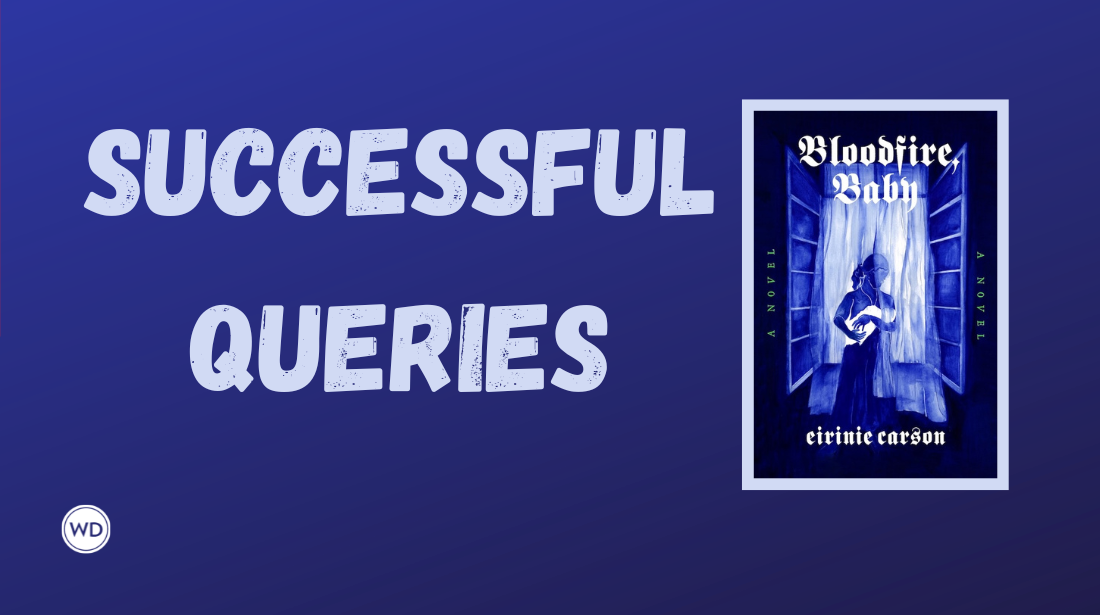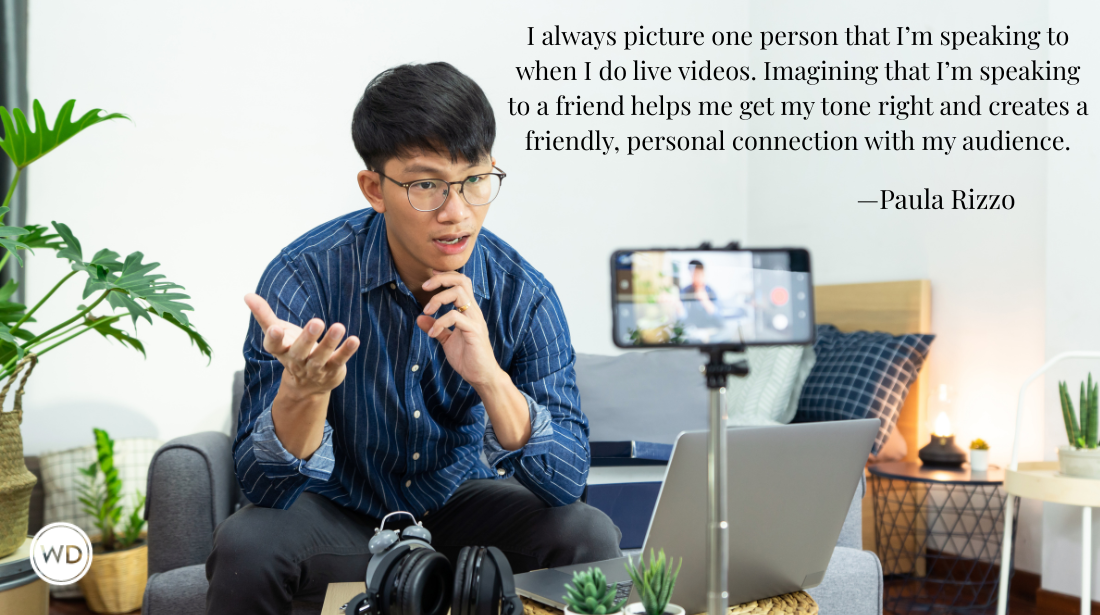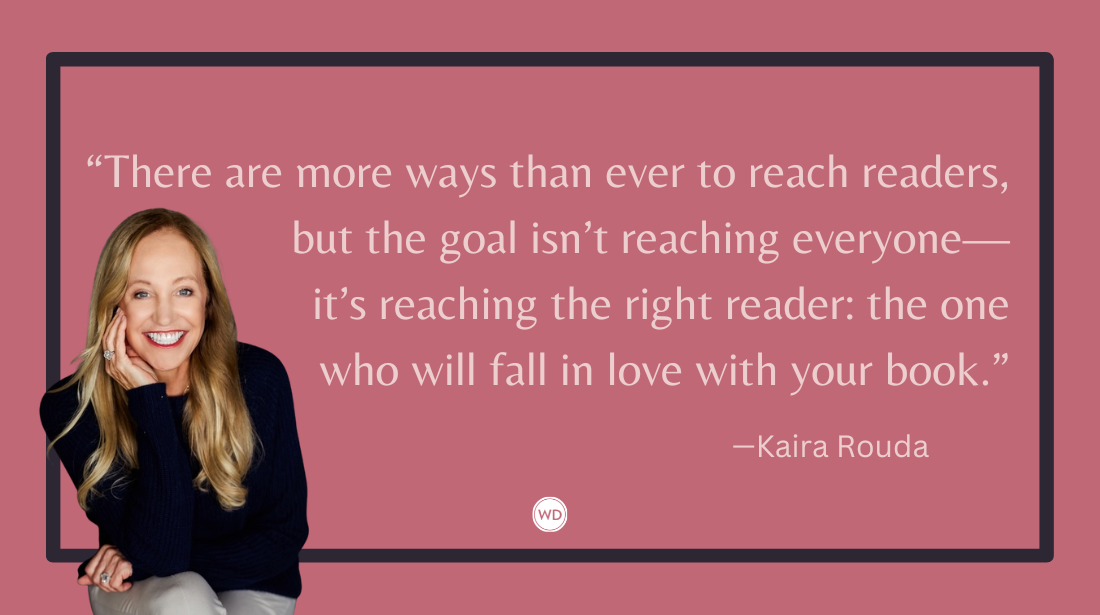How Practice Pitching the Wrong Book Got Me My Agent
Author K. Valentin shares how taking a chance on pitching agents via Zoom eventually led to representation of her debut novel.
We’ve all read those fae-bargain-esque “How I Got My Agent” stories. A chance meeting or a DM on socials—sometimes a manuscript doesn’t even exist—followed by an offer of rep, a book sale, and six-figures. Makes a writer want to fling their query-weary body into the inviting sea.
I don’t have one of those stories.
My path to getting agented was filled with suffering (querying), and hampered by one glaring personal flaw: I was really bad at talking about my books.
To fully appreciate this journey, rewind to the end of lock-down. Despite working full time, I emerged with three books. I’d learned to write, deduced the mysteries of querying, and found an amazing writing group of similarly deranged over-achievers with these books.
Here starts the problem.
These books weren’t good enough. These new writer friends were wildly gregarious and willing to help coax them into shape, but I was incapable of explaining the gaps in my plots, the messiness in my character arcs, or the pacing issues I could recognize but needed an outside opinion to fix. This problem was made even more obvious at a prolific fantasy author’s workshop. I got dedicated 1-on-1 time with her but all I could bring myself to ask was: “Does this seem like a book to you?”
I expressed this frustration to a friend, and she suggested something that helped her: She’d signed up for live Zoom pitch sessions. For those unaware, there’s almost always a writer’s conference happening and many have pitch situations with real agents and agency talent scouts. Authors can reserve 3-10 minutes and pitch their books to them. These happen in-person and over Zoom.
The threat of a human staring into my eyes while I explained that, “Actually, I’m quite funny,” sounded like a great way to force myself to figure out how to talk about my books.
The event of choice was the Florida Writing Workshop. It was two weeks away, online, and critically important to note, had the talent scout for my Dream Agent. I thought pitching the talent scout was slightly less psyche-destroying than pitching the Dream Agent. A baby step toward being able to talk without disassociating. To make it even harder on myself, I also picked two other agents. I’d have 10 minutes with each to give my pitch and then pick their brains for ways to improve it.
But which book? If you recall, I had three potentials. The first book was bad. A few queries in, I knew it needed loads of work. My second book was sci-fi and the obvious choice because I’d found aforementioned Dream Agent in the acknowledgements of another sci-fi book. This is where nerves kicked in, and I remembered that I was there specifically because I was bad at pitching. Did I really want to burn this chance trying something for the first time?
Enter the third manuscript. I’d just finished a round of edits on it. It was voicier than my other stuff. It was sillier too. It was way more me than anything else (let’s not analyze what it says about me that I was willing to risk this one). It was also the book I’d asked the prolific author about on a retreat. Does this seem like a book to you? She’d said yes. Third book it is!
Now I needed the pitch. I spent the next two weeks doing what any well-adjusted hyper-obsessive person does and consumed every piece of live pitching information out there. I crafted my pitch—even included normal foibles of speech so I’d come across like a human being (admitting that makes me sound like the opposite of a human being). I recorded myself giving the pitch upwards of 25 times. I would wander my house reciting it.
As luck and timing would have it, Dream Agent’s talent scout was the third time slot, so I had two whole runs before her. I slid into the first and second meetings with gusto. No notes from either agent and both asked for pages. Success! Then it was time for the third pitch.
My only goal was to sound like a person who talks about their book without projecting hysteria and physical pain with every word. And I did it, friends. We had a great conversation. Most startlingly, she thought Dream Agent would love the book. I assumed she was being nice. I assumed they were all being nice. I thought they took pages from everyone. I ended the event sweaty but feeling accomplished. I’d used out-loud words to explain a goth witch with a demon trapped inside him and I hadn’t blacked out or anything.
Please understand, in my mind, this book wasn’t polished. This book needed work. This book hadn’t suffered through the query trenches like the other two. This book was only showing its face to the world for practice. But a month later, all three agents asked for fulls.
I’d love to say Dream Agent then proceeded to ask for a call, say the manuscript was perfect, offer rep, and we sold it for 10-trillion dollars, but I already explained this wasn’t a charmed life situation. Dream agent did email… to tell me she’d gotten to the halfway point before the manuscript lost steam. She carefully explained what could change that would keep her on board, and said if I did those revisions, she’d gladly read it again.
Getting her insights blew my brain out of my skull. I spent the next month rehauling the manuscript. There was a spreadsheet. It had 37 points. Every non-day-job-moment was revising, and then I kicked it back to her and held my breath. Then she asked for a call.
It wasn’t perfect, but she thought I’d substantially improved it, and she made an offer of rep. Now, nearly two years later, I’m debuting with that book on October 14. It’s called An Amateur Witch’s Guide to Murder, and it really is about a goth Puerto Rican wannabe-brujo with a demon trapped inside him, who’s working as an occult specialist to earn enough money for an exorcism. I can say that out loud to all sorts of people now.
Possible morals from this wild ride: Make yourself uncomfortable. Trust the weird book you wrote that you weren’t sure was a book. Do things the way you would do them—even if that means scripting what should be normal human speech. And put yourself out there. It’s the only way for your dream agent to find you.
Check out K. Valentin's An Amateur Witch's Guide to Murder here:
(WD uses affiliate links)









